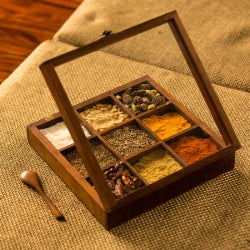Christmas: Understanding the History and Origin
It's that time of year once more! It's palpable in the air. Every year, in the middle of December, the atmosphere gradually shifts from humdrum to joyous. Those who live far from their families begin packing their belongings in order to return home, while those who are unable to do so begin to feel nostalgic as they recall all the pleasant memories. Christmas decorations pick up speed, as does shopping for new outfits and gifts for loved ones. Children begin to anticipate a visit from a specific joyful saint clothed in red. Everywhere you look, there's a sign that Christmas is just around the corner.
Christmas is without a doubt the world's largest event. It is celebrated with zeal and zeal all throughout the world. After a year of hard work, ups and downs, and the numerous trials that life offers, this is the time when people begin to forget their troubles and feel happy and grateful for everything that they have. Christmas is widely celebrated on December 25 to honour the story of Jesus birth, and it is difficult to avoid the celebrations wherever you are in the globe. Most countries throughout the world observe it as a public holiday. While you may be aware of how big of a deal Christmas is, do you realise how the holiday was started?

Understanding the History about Christmas
The origin of Christmas is the yearly Christian celebration that commemorates Christ's birth and is observed on December 25 in the Western Church. The customary date of December 25 dates back to A.D. 273. On that day, two pagan festivals worshipping the sun were also held, and it is conceivable that December 25 was selected to combat the impact of paganism. Even today, some people are unhappy with Christmas because they believe it is polluted by the pagan celebrations that take place on that day. Christians, on the other hand, have long held that the gospel not only transcends culture, but also alters it. One theologian responded to the brief history of Christmas in A.D. 320 by saying, "We regard this day sacred, not like the pagans because of the birth of the sun, but because of him who made it."

The interesting genesis tale of Christmas
For centuries, Christmas was celebrated as a season in portions of the world, commencing with this day, December 24, Christmas Eve. Perhaps the custom of celebrating the evening before the big day is a throwback to ancient Jewish reckoning. A day began at six o'clock in the evening and ended at six o'clock the next evening among early Jews. Wasn't it Moses who said, "An evening and a dawn were the first day"?
Christmas is pronounced "Christ-mass." Although the date is an estimate, it has been observed since at least the fourth century. Christian customs superseded pagan solstice festivities throughout Europe as a result of the church's influence. The more innocent pagan customs (such as bringing in a Yule log and adorning with holly, for example) were frequently carried over into the Christmas observance, transfigured with new meaning.

How has Christmas evolved through the ages?
Christmas was previously celebrated only at public gatherings, but that altered in the early nineteenth century when families began to celebrate on their own. Christmas customs such as putting up a christmas tree, candles, home decorations, exchanging gifts, tea-lights and contributing to charity emerged in the early to mid-nineteenth century, with each family deciding how to celebrate.
The Romans celebrated Brunalia, the "birth of the unconquered son," on December 25th. This was akin to Christmas for all those who worshipped Mithras, the Persian sun deity. During this period of history, this was maybe the only other Pagan religion that could be considered a legitimate enemy to the Christian faith. It was already A.D. 336 when the Western Church designated December 25 as Christmas Day. Other religions, such as the Jewish faith, organise special celebrations around this period, such as Hanukkah.
Christmas became a more commercial event after World War II. There were more Christmas decorations and music in stores. Christmas-themed episodes aired on radio and television. People sent Christmas cards to friends and relatives, and others carolled from door to door.

Modern Traditions
Clement Moore penned a poem for children in 1822 that has never been forgotten. "Twas the Night Before Christmas..." was the title!
Santa Claus origin is a Dutch term for Saint Nicholas, which is spelt Sinter Claus in English.
Saint Nicholas was said to be the first Bishop of a church in Asia Minor [modern-day Turkey]. He became aware of some serious needs in his flock, including a family being forced to sell their children into slavery, so he visited their house one night and left money on their doorway. It was like finding gold in a stocking.
Christmas cards first appeared in 1844. In England, an English artist called William Dobson created several images for use during this season. They were quickly adopted by the locals and spread to America. In 1846, Cole and Horsley saw the business potential of this expanding custom and began manufacturing what is today a $1,000,000,000.00 industry, with 4 billion cards delivered each year in the United States alone.






Leave a comment